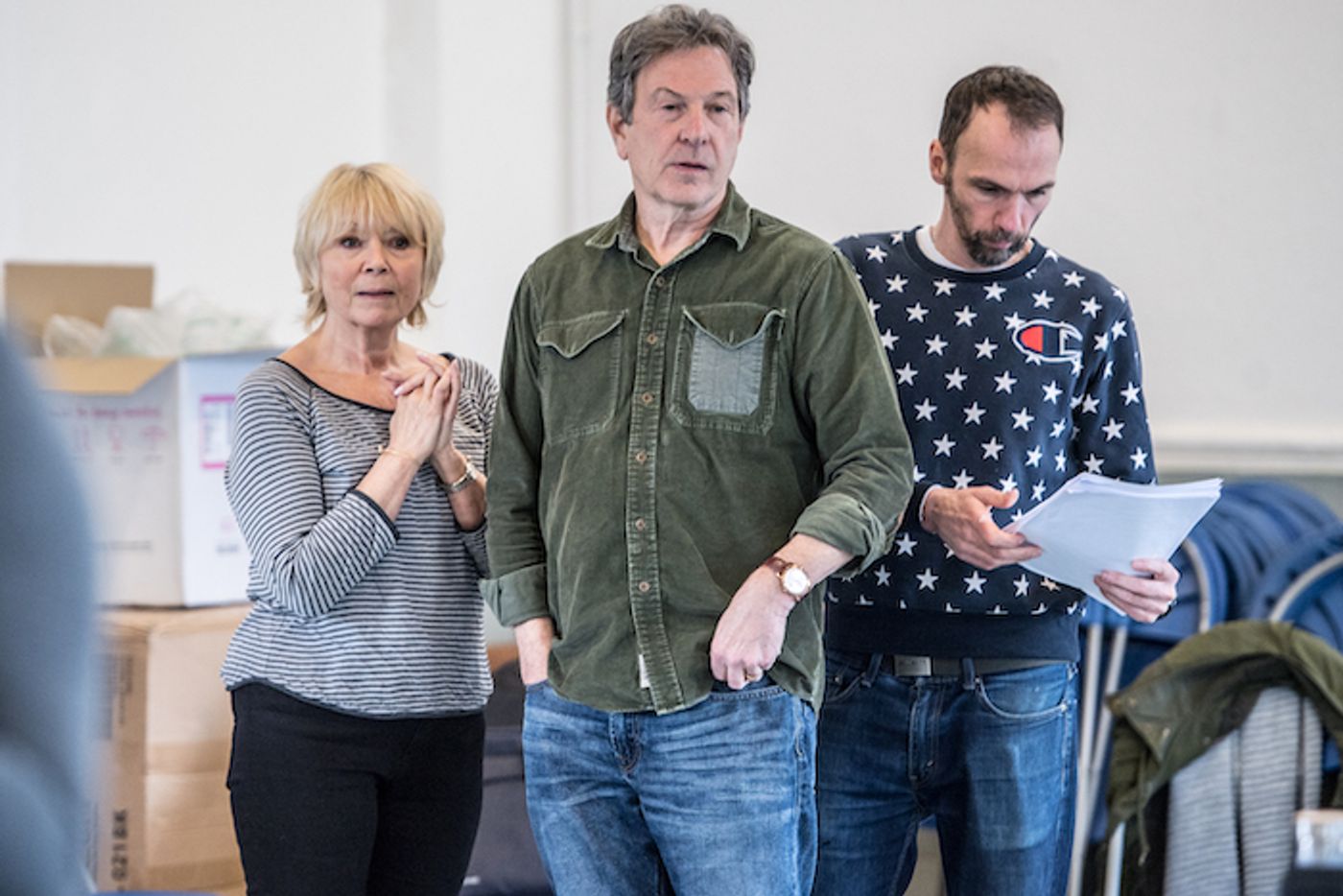Guest Blog: Director Katharine Farmer On OTHER PEOPLE'S MONEY

with Michael Brandon
Other People's Money explores the difference between price and values.
It's a surprisingly entertaining and poignant look at a family-owned business in crisis. New England Wire and Cable may not have flourished, but Andrew Jorgenson kept the company going despite economic downturn and bring commerce to his small town. This little company has had nothing to do with Wall Street tycoons - until now.
Lawrence Garfinkle, a hedge fund manager, recognises that by selling the land, machinery and subsidiaries, the company is worth more dead than alive. He's become notorious for hostile takeovers and gained the nickname "Larry the Liquidator" on Wall Street. Jorgenson and Garfinkle go head-to-head in attempt to save the company, which has a huge impact on the life of its employees.
Although this is only a story, it's not a million miles away from the truth. Jerry Sterner had a prolific career in the finance industry before deciding to make some of his experiences into a play. As a result, Other People's Money is brutal and realistic in its handling of corporate raid.
Sterner doesn't shy away from attacking the uglier side of the industry, also exposing the misogyny that's rife on Wall Street. He combats this with the women in the play who challenge Garfinkle and his approach to business. Bea and Kate Sullivan question Garfinkle's lack of empathy and make him consider the consequence of his actions. A lot of the language he uses is problematic and may ruffle feathers, but it exposes the toxic masculinity that often comes hand-in-hand with high finance.

Garfinkle has no self-doubt, but he isn't completely vilified. As he softens, we learn his reasoning behind what he does and why. He believes in productive assets and market growth, and his determination makes him a force to be reckoned with.
Understanding people's motivation is a huge part of Other People's Money, and the hubris of the characters. Kate is looking out for her career, Garfinkle for his money, Bea for her man and Jorgy for his legacy. As a result, the play is about necessity and what lengths people go to protect their needs and wants.
Ultimately, someone will get hurt in the process of everyone looking out for their own self-interest. This makes Other People's Money a classic cautionary tale. The prologue sets out that this is a story about friendship, tradition and loyalty, but most of all money and its corrosive and corruptive power.
The play debunks the glamorisation of Wall Street and exposes the underbelly of a more sinister approach to finance, stressing the importance of morality in business.
One of the characters who struggles with this is Bill Coles. He's been a loyal employee of New England Wire and Cable for 12 years when the company finds itself "in play". The realisation that traditional values don't stack up against the new is devastating and Coles has to face making the right decision for him and his family.
Betrayal is one of things that makes this play more than just about a business in crisis. It's a human story with a beating heart full of pain, anger and conflict between different generations.
As well as the clash of generations in the workplace, I was drawn to the play for its strong mother-daughter storyline, as Bea and Kate have to confront the issue of infidelity at home.
When I first discovered this play in a second-hand book shop, I realised how little has changed in the 11 years since the global financial crisis and that we are still dealing with similar issues today. Other People's Money was written 30 years ago, but doesn't feel outdated or preachy. It's an honest look at a period of political and economic change, and I hope audiences will recognise its pertinency today.
Other People's Money at Southwark Playhouse until 11 May
Videos

